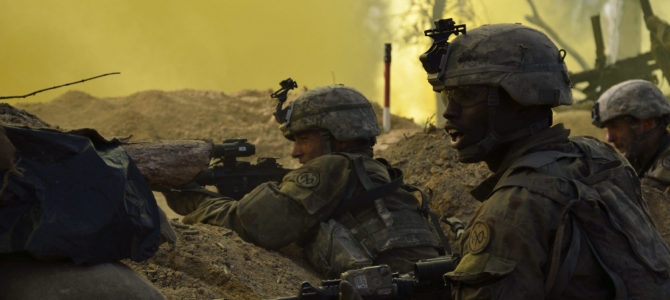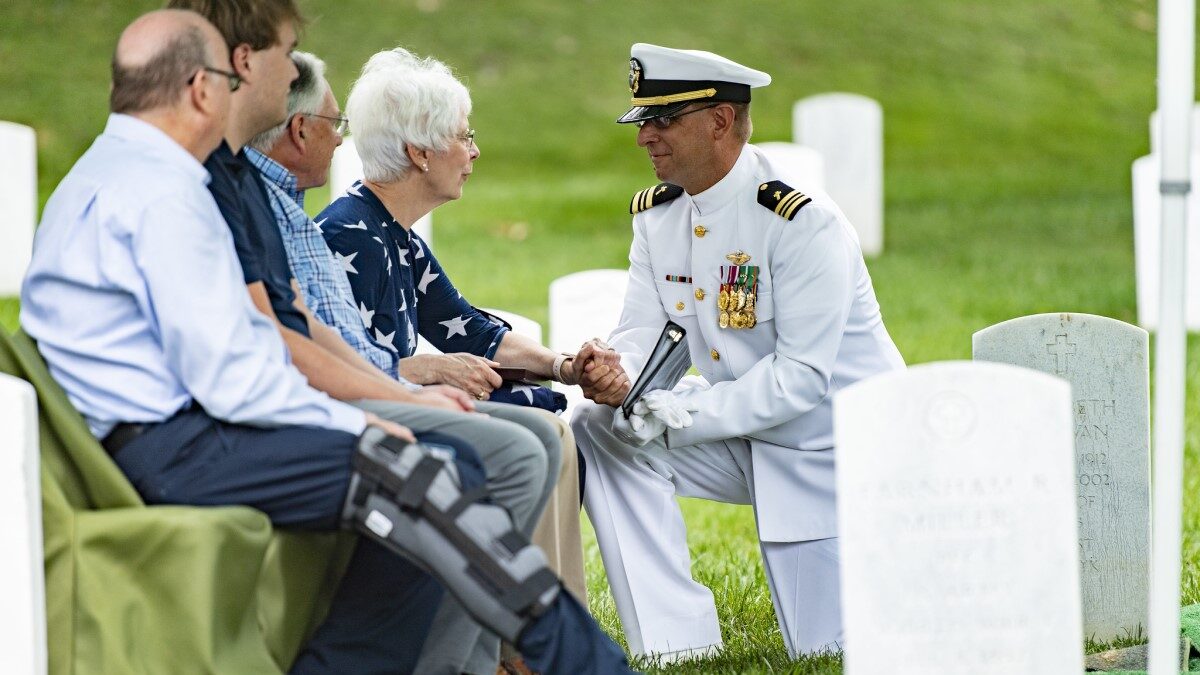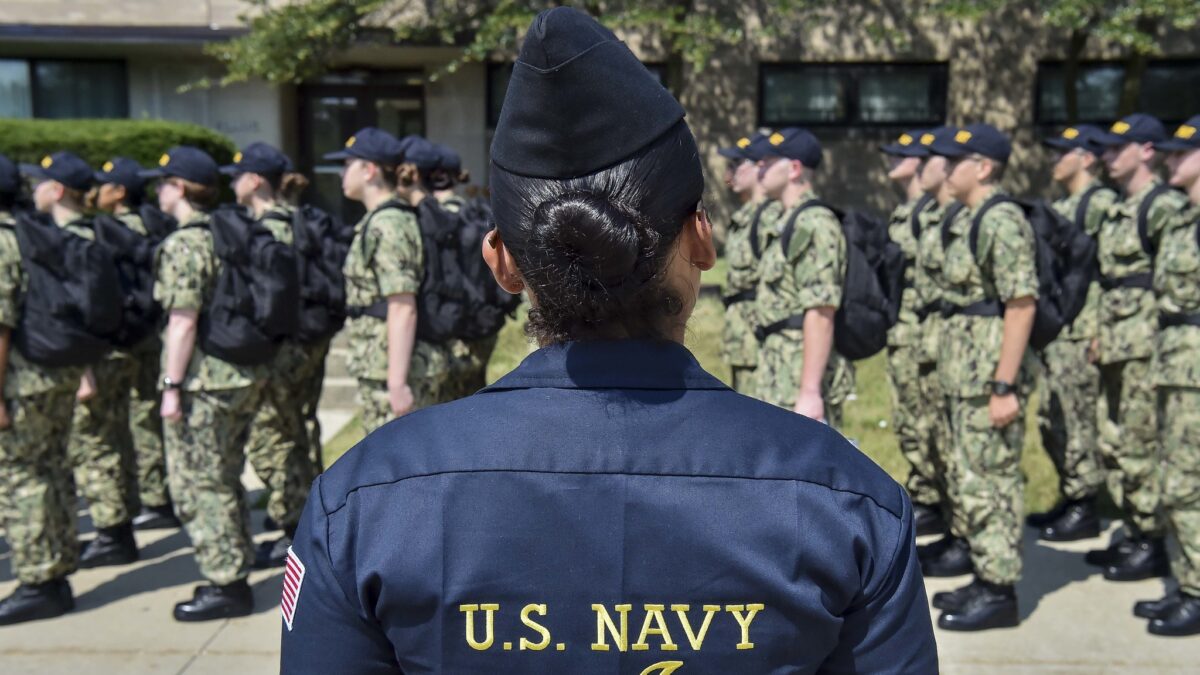
After President Trump tweeted out his intent to return the military’s transgender policies to their pre-June 2016 form, a common refrain has erupted among those who disagree with the decision: “everyone who is qualified to serve should be allowed to serve.” This might be the only thing that both sides actually agree upon. Nobody disputes the idea that all qualified volunteers should be allowed to serve their country if they choose to do so. What we actually disagree about is the definition of “qualified.”
The transgender policy simply enforces the military’s uniform combat readiness standards that apply to all servicemen and women. There are three readiness issues at play in the transgender context. The first issue is the physical readiness problem caused by a system that evaluates transgender troops’ physical fitness for duty under the standard of whichever sex they identify with internally—male or female—instead of the physical fitness standards that were intentionally designed for individuals who share their biological characteristics. I wrote about this issue previously, and explained it in greater detail on Tucker Carlson.
The Physical and Mental Health Needs Are Unsustainable
The second argument, made forcefully by J.R. Salzman, is that combat is a uniquely stressful environment that can break even the most mentally and emotionally grounded soldiers. Nearly half of transgender individuals suffer from depression or anxiety. More than one in five have considered suicide within the last 30 days, and 41 percent do attempt suicide.
These statistics are awful, and they merit greater attention and examination, but they are simply not compatible with the realities of combat. Deployments, a close friend observed while we were in Afghanistan, “are like an echo chamber of your own emotions.” They are not good for anyone’s blood pressure, and can be catastrophic for those who bring outside stressors overseas with them. The military routinely screens out recruits who have histories of depression and anxiety, even though their intentions are no less admirable than the intentions of transgendered individuals who want to serve, under the very principle that “everyone who is qualified to serve should be allowed to serve.”
Finally, there are logistical problems caused by deploying soldiers who require a steady, if not daily, regimen of hormone treatments to stay healthy. Soldiers in basic training are not even allowed to keep personal bottles of Advil, because the military is designed to create warriors who can function independently in austere and primitive environments and to weed out those cannot do so.
If a transgendered female soldier is serving on a remote observation post in Syria with a platoon that is carrying only rucksacks and weapons, should resupplies of hormone injections be flown in? Should the medic remove other medical supplies from his med-bag to make room for two weeks’ worth of injections or patches?
If the answer is yes, is doing so fair to the pilots who have to expose themselves to anti-aircraft fire to fly the resupply missions, or to the medics who now must either carry extra supplies, or to the platoon that may have fewer pressure dressings with them? The military does not allow soldiers who require ongoing treatment for depression or anxiety to deploy, for that exact reason, even if they ardently wish to do so.
Why Are We Signing Up Soldiers Who Cannot Go to War?
Furthermore, even individuals who forego hormone replacements frequently experience long-term complications from sex reassignment surgeries that are incompatible with the potential requirements of extended ground combat missions. And if soldiers who require ongoing treatment are not deployable, why are we signing up soldiers who cannot go to war? How does that help make our country safer?
The military has one mission and one mission only: to be as lethal and efficient as possible so it can protect the country by winning wars. We should pursue every policy that makes us more effective and reject any policy that does not further those interests.
In a country where only 1 percent of the population volunteers to join the military, it is truly laudable that some transgender men and women desire to raise their hands and swear an oath to support and defend the Constitution. I will drink a beer with any of them, any day of the week, for that reason alone. But military service is a privilege, not a right. And the military has an obligation only to admit and retain soldiers who make it more effective at fighting wars.
This is not a culture war issue. I am not making any claim about the broader culture wars, nor do I intend to. This is a readiness issue. Everyone who is qualified to serve should be allowed to serve. Unfortunately, that excludes nearly half of the U.S. population in various ways. But that is the reality of the mission and purpose of our armed forces.
The widely divergent reactions between my active-duty friends and the general population makes me believe that the oft-discussed military/civilian divide has become very real after 16 years of war waged by an all-volunteer army. To many active-duty service members, this policy is common sense — we have been told time and again that service is a privilege that is awarded according to predefined standards, not a right that everyone is entitled to. Perhaps this is why a Military Times poll last December found that only 12 percent of active-duty troops thought the Obama administration’s change in policy would improve readiness.
Everyone who is qualified to serve should be allowed to serve. But we owe ourselves, and more importantly we owe the men and women we send to the battlefield on our behalf, an honest discussion about the definition of qualified.









